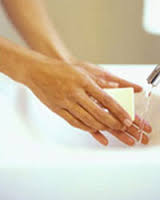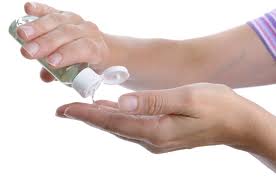Infections can come from anywhere. Dirty hands can transmit harmful pathogens such as bacteria, viruses, and parasites, leading to various infections including gastrointestinal illnesses, respiratory infections, skin infections, and eye infections. Proper hand hygiene, including washing hands with soap and water, is crucial to prevent the spread of infections.
Washing your hands from time to time might not keep you away from all of them, but it can definitely help avoid a few. Hand washing is simple, requires just water and soap or in absence of that, a sanitizer.
Why you should wash your hands

People interact with each other, shake hands, go to various places, use various objects and even use common washrooms. It is important to remain germ-free after doing all this. Touching your nose, mouth or eyes with unclean hands can also infect you. Frequent hand washing does not make you germ-free but reduces the transfer of bacteria, viruses and other microbes to a certain limit.
When you should wash your hands

Wash your hands before:
· Cooking or eating food
· Wearing or taking off contact lenses
· Cleaning wounds and giving medicine
· Treating a sick person
· Playing with a newborn baby
Wash your hands after:
· Having food
· Coming home from anywhere
· Using pesticides or other agents like mosquito or cockroach killers
· Using the toilet
· Touching and playing with animals
· Cleaning wounds or treating a sick person
· Blowing your nose, sneezing or coughing into your hand
· Using chemicals in the garden, throwing garbage or any other such household chores that includes some dirty work and requires you to use your hands
How to wash your hands

You wash your hands everyday and might think it is a silly to read a “how-to” on it but it is always better to refresh your ideas and remind yourself on how to do things right.
Generally, handwash/soap and water are used to wash hands. The simple steps are as follows:
· Wet your hands
· Apply soap or hand wash
· Form lather
· Rub both the hands. Try to clean in between fingers, under the nails and the back of your hands along with wrists. Rub for some 20 seconds
· Pat dry with a clean or disposable towel or use air dryer
When to use a sanitizer

Alcohol based sanitizer can be used when water and soap are not available. It is important that your sanitizer contain at least 60% alcohol.
How to use a sanitizer
Apply a dime-sized amount of sanitizer to the palm of one hand, rub hands together for 20 seconds, covering all surfaces, until dry.
· Take a small quantity of sanitizer in your hands and rub it to wet your hands completely.
· Rub it till your hands are dry.
Kids and hand washing

Good habits must be cultivated from childhood. Kids must be encouraged to wash hands regularly. The best way to teach them is by being a good example. Tell them to sing a line of their favourite song as they wash their hands to stop them from rushing the process
It is okay for the kids to use sanitizers. They are not harmful. Teach them how to use it properly. Warn them strictly to rub till the alcohol dries. Store the container out of their reach or they will be tempted to use it time and again either for the smell or for the cold feeling it gives for few moments before getting dried.
Wash your way to health
Though soap may not kill every virus it comes across, it definitely decreases the viral count and brings it below the infectious threshold. It is neither time consuming, nor does it take any major effort. Wash your hands often to fall sick less often.
Regular handwashing with soap and water is one of the most effective ways to prevent the spread of infectious diseases and maintain good health, as it removes harmful pathogens that may be present on hands.
